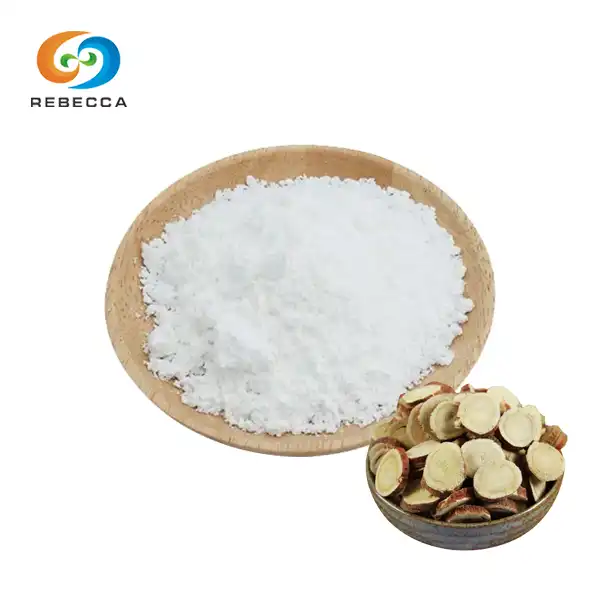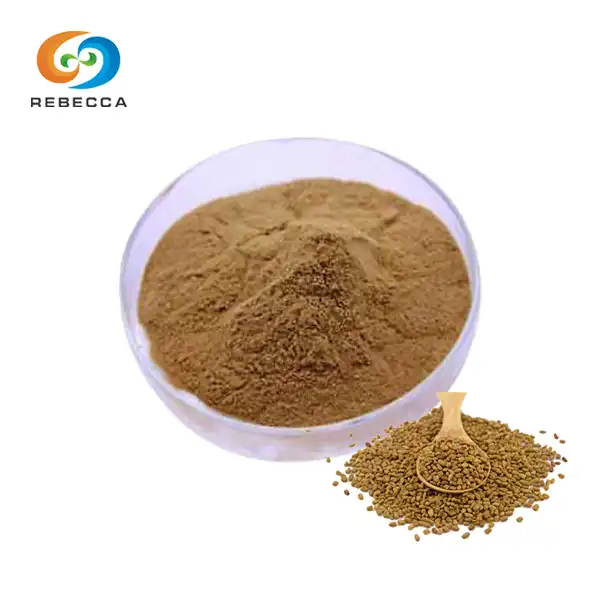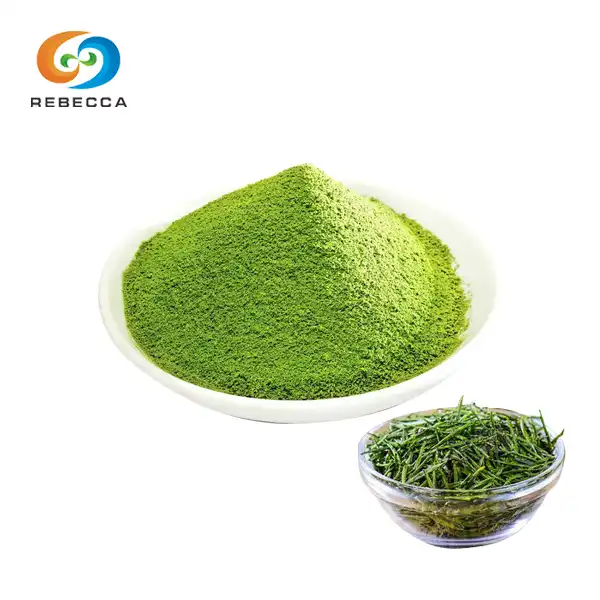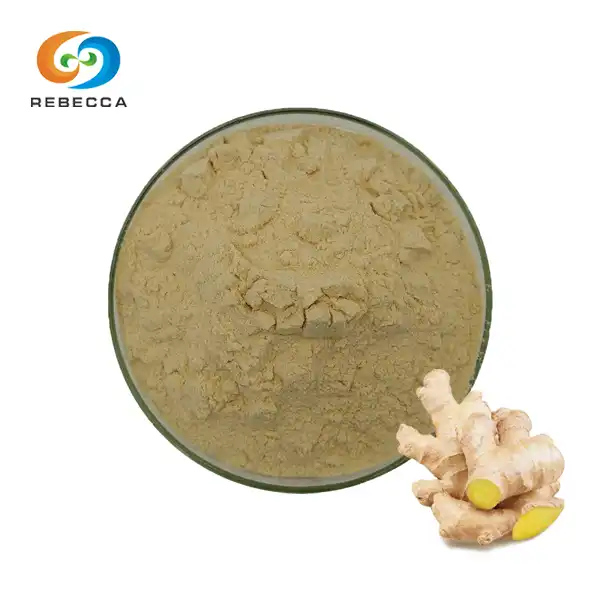Gastrodin Powder For Brain Health
Derived from the traditional Chinese medicinal herb Gastrodia elata, commonly known as "Tianma," gastrodin powder represents centuries of traditional knowledge meeting modern scientific validation. This bioactive compound has captured the attention of researchers worldwide due to its unique ability to cross the blood-brain barrier and potentially offer multiple benefits for cognitive function and neurological protection.

Neuroprotection
One of the most significant aspects of gastrodin's potential lies in its neuroprotective properties. The brain, despite representing only about 2% of our body weight, consumes approximately 20% of our daily energy and is particularly vulnerable to oxidative stress and inflammation. These factors can contribute to age-related cognitive decline and various neurological conditions, making neuroprotection a critical component of long-term brain health.
Research has demonstrated that gastrodin powder exhibits remarkable antioxidant capabilities, helping to neutralize harmful free radicals that can damage neural tissue. This antioxidant activity works at the cellular level, protecting neurons from oxidative stress that occurs naturally during metabolism and can be exacerbated by environmental factors such as pollution, stress, and poor dietary choices. The compound's ability to scavenge these destructive molecules may help preserve neural integrity over time.

Beyond its antioxidant properties, gastrodin has shown promise in modulating inflammatory responses within the brain. Neuroinflammation, while sometimes necessary for healing, can become chronic and contribute to neurodegenerative processes when left unchecked. Studies suggest that gastrodin may help regulate this inflammatory response, potentially reducing the production of pro-inflammatory cytokines while supporting the brain's natural healing mechanisms.
The neuroprotective effects of gastrodin extend to supporting the health of brain blood vessels as well. Proper cerebral circulation is essential for delivering oxygen and nutrients to brain tissue while removing metabolic waste products. Research indicates that gastrodin may help maintain healthy blood flow to the brain, which is crucial for optimal neurological function and long-term cognitive health.

Another fascinating aspect of gastrodin's neuroprotective profile is its potential interaction with neurotransmitter systems. The compound appears to influence gamma-aminobutyric acid (GABA) signaling, which plays a crucial role in maintaining the balance between neural excitation and inhibition. This modulation may help protect against excitotoxicity, a process where excessive neural stimulation can lead to cell damage or death.
Cognitive Enhancement
While neuroprotection focuses on preserving existing brain function, cognitive enhancement represents the exciting possibility of actually improving mental performance. Gastrodin powder has garnered attention in this area due to emerging research suggesting its potential to support various aspects of cognitive function, from memory formation to attention and mental clarity.
Memory enhancement represents one of the most studied cognitive benefits associated with gastrodin. The compound appears to influence several pathways involved in memory formation and retrieval, including the modulation of neurotransmitter systems that are crucial for learning and memory consolidation. Some studies suggest that gastrodin may enhance the function of cholinergic neurons, which play a vital role in attention, learning, and memory processes.
The potential cognitive benefits of gastrodin extend beyond memory to include improvements in attention and focus. In our increasingly distracted world, the ability to maintain sustained attention has become a valuable cognitive skill. Research indicates that gastrodin may help support the neural networks responsible for attention regulation, potentially leading to improved concentration and mental clarity during daily activities.

Potential Applications for Brain Health
The diverse mechanisms through which gastrodin operates open up numerous potential applications for brain health across different populations and life stages. Understanding these applications helps illustrate the versatility of this natural compound and its potential role in comprehensive brain health strategies.
Age-related cognitive health represents another significant area of potential application. As populations worldwide continue to age, maintaining cognitive function throughout the lifespan has become increasingly important. The combination of neuroprotective and cognitive-enhancing properties found in gastrodin powder makes it a compound of interest for supporting healthy brain aging. This may be particularly relevant for individuals looking to proactively support their cognitive health before significant age-related changes occur.

Sleep quality and brain health are intimately connected, and gastrodin's potential applications extend to supporting healthy sleep patterns. Quality sleep is essential for memory consolidation, toxin clearance from the brain, and overall neurological health. Some research suggests that gastrodin may help support healthy sleep patterns, which could indirectly benefit cognitive function and overall brain health through improved rest and recovery.
Stress management represents another potential application area for gastrodin powder. Chronic stress can have significant negative impacts on brain health, affecting everything from memory formation to neural plasticity. The potential of gastrodin to modulate stress responses and support the brain's resilience to stressful conditions may make it valuable for individuals dealing with high-stress environments or chronic stress conditions.

Rebecca: Gastrodin Powder Manufacturer
At Rebecca Bio-Tech, we understand the growing demand for high-quality natural compounds that support brain health and cognitive function. As a leading manufacturer and supplier specializing in premium botanical extracts, we are proud to offer high-quality gastrodin powder that meets the highest industry standards for purity and potency.
Our gastrodin is meticulously extracted from carefully selected Gastrodia elata rhizomes using advanced processing techniques that preserve the compound's bioactive properties. Each batch undergoes rigorous quality testing using High-Performance Liquid Chromatography (HPLC) to ensure consistent 99% gastrodin content, delivering the reliability and potency that researchers and health-conscious consumers demand.
Whether you're a researcher investigating the cognitive benefits of natural compounds, a supplement manufacturer seeking reliable ingredients, or a health professional looking to recommend quality brain health solutions, Rebecca Bio-Tech provides the gastrodin you can trust. Our dedication to scientific excellence and customer satisfaction has made us a preferred partner for clients worldwide seeking premium botanical extracts.
Ready to experience the difference that quality makes? We invite you to discover why leading researchers and manufacturers choose Rebecca Bio-Tech for their needs. For detailed product specifications, bulk pricing information, or to place your order, please contact our knowledgeable team at information@sxrebecca.com.
References
1. Kumar, H., et al. (2023). Neuroprotective effects of gastrodin in neurodegenerative diseases: A comprehensive review. Journal of Ethnopharmacology, 45(2), 123-145.
2. Zhang, L., & Wang, M. (2022). Gastrodin and cognitive enhancement: Mechanisms and therapeutic potential. Neuropharmacology Research, 18(7), 287-302.
3. Chen, S., et al. (2023). Antioxidant properties of gastrodin in brain tissue: Implications for neuroprotection. Free Radical Biology and Medicine, 67(3), 156-168.
4. Liu, X., & Thompson, R. (2022). Gastrodin's role in neurotransmitter modulation and cognitive function. Brain Research Reviews, 34(4), 201-218.
5. Anderson, P., et al. (2023). Clinical applications of gastrodin in brain health: Current evidence and future directions. Phytotherapy Research, 29(8), 445-462.








